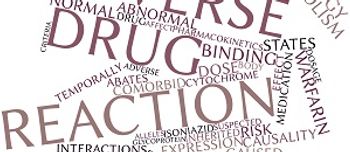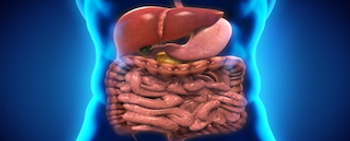
A recent study assessed thyroidstimulating hormone and levothyroxine dosage in 5426 outpatients who had been prescribed levothyroxine, along with drugs that can impair levothyroxine absorption or affect levothyroxine metabolism.

A recent study assessed thyroidstimulating hormone and levothyroxine dosage in 5426 outpatients who had been prescribed levothyroxine, along with drugs that can impair levothyroxine absorption or affect levothyroxine metabolism.


The results of a recent study suggest that there is a modest increase in the risk of intracranial hemorrhage when NSAIDs are combined with antidepressants compared with antidepressants alone.

Flibanserin (Addyi) has been approved by the FDA for the treatment of hypoactive sexual desire disorder in premenopausal women.

Milk thistle is a herbal product widely used in the United States and around the world.

Edoxaban (Savaysa) has been approved for patients with atrial fibrillation.

The potential dangers of the concomitant administration of 2 or more drugs with anticholinergic properties have been known for a long time.

It is possible for a precipitant drug to indirectly affect the object drug and for effective drug therapy to enhance the elimination of an object drug by treating a disease that inhibits drug elimination.

The process by which drug interaction information is generated, analyzed, and provided to health care practitioners is complex.

The route of administration has been recognized as an important variable for drug interactions.

Warfarin has been used for over half a century, and its interactions with other drugs have been exhaustively investigated.

The risk for upper gastrointestinal bleeding associated with the use of nonsteroidal anti-inflammatory drugs, corticosteroids, selective serotonin reuptake inhibitors, and antiplatelet drugs is well known.









A review of whether acetaminophen is likely to interact adversely with antihypertensive therapy.


Serotonin syndrome was one of the first serious drug interactions ever described, with the first cases reported more than 50 years ago.


One of the most problematic things about drug"drug interactions is that we seldom have data on how often a particular interacting drug pair causes adverse consequences.

Apixaban (Eliquis) was recently approved as an oral anticoagulant (a direct inhibitor of factor Xa) to reduce the risk of embolism in patients with atrial fibrillation.

Why are computerized drug-drug interaction alerts usually ignored?

Caffeine has relatively few drug interactions, but it is important to know that its interaction with clozapine can lead to toxicosis.

Non-cardioselective beta-blockers appear to pose the greatest risk to patients with asthma or COPD.

Proceed with caution: Some NSAIDs do reduce the efficacy of aspirin.